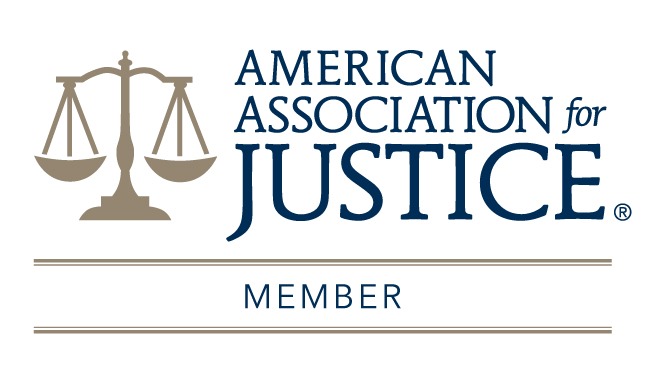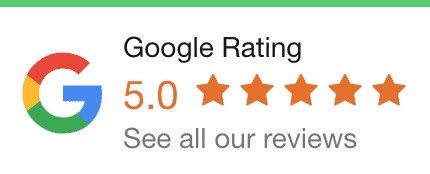Trusted Phoenix Assault Injury lawyers
What are Intentional Torts?
Types of Assault
Assault Injury In Phoenix

Have you been injured by an assault, battery, or other intentional act committed by another person? The right Phoenix personal injury lawyer can assist you in obtaining compensation for your injuries. Lebovitz Law Group represents clients who have suffered injuries not only as the result of negligence, but also as the result of assault, battery, sexual assaults, and other harmful intentional torts.
What are Intentional Torts?
When most people think about pursuing claims for personal injuries and damages, they imagine car crashes, slip and fall cases, injuries suffered in the workplace, doctor’s mistakes (medical malpractice) and similar situations. All of these claims have one thing in common — they resulted from an accident, that is, an unplanned, unintentional act.
In contrast, intentional torts are intentional actions or omissions that causes harms to someone. These include assault and battery, other kinds of assault, and trespass. While other claims involve proving the negligence of the other party, intentional torts require that the plaintiff prove that someone acted intentionally and that the intentional act caused you harm.
How Do You Prove an Intentional Tort?
Assault, is one of many civil causes of action known as “intentional torts.” Generally, the intent required is an intention to cause offensive contact of some sort. You are not required to prove, for example, that the defendant intended to cause you a specific injury, or, in some cases, any injury at all.
The fact that a particular act may also constitute a crime is largely irrelevant to your civil damage case. If you have been the victim of a criminal assault, you are not required stop at the criminal justice process. The person who struck or otherwise assaulted you may or may not be charged criminally, and he may or may not be convicted of a crime. Whatever the outcome under criminal law, you are free to pursue your claim for civil damages against that person.
There are a host of intentional torts that can support a claim for damages. They include not only assault, but also false imprisonment, intentional infliction of emotional distress, fraud, conversion, libel, slander, abuse of process, malicious prosecution, and trespass, among others. The bulk of damage claims based upon intentional torts, however, involve assault of one form or another.
Types of Assault
According to Arizona Revised Statutes Section 13-1203, a civil cause of action for assault in Arizona requires that you prove that the defendant:
- Intended to cause offensive contact with, or harm to, you or a third person, or intended to cause apprehension of such immediate harm or contact; and
- Caused apprehension of immediate harm or contact; and
- You suffered damages.
The definition of “offensive” contact is contact that would offend a reasonable person.
This means an assault is committed as long as there is intent to cause apprehension of offensive contact, and no actual contact is necessary. Battery, on the other hand, includes the actual contact — this is the only difference between the evidence required to prove liability in an assault case or a battery case. Having said that, the two are often part and parcel of the same claim for damages.
Some of the confusion over the use of the terms “assault” and “battery” stems from the fact that in Arizona, the threat (assault) and the physical contact (battery) are treated as separate actions in civil court, whereas both actions fall under the heading of assault under the Arizona Criminal Code.
Sexual Assault
As with other types of assault, victims of sexual assault and sexual molestation may sue their attackers and others who have committed a sexually-related offense. Sexual assaults can include inappropriate touching, molestation, forcible rape, using date rape drugs to contaminate someone’s drink, and numerous other behaviors. In addition to having someone physically attack, batter, or touch you, there can be emotional trauma from an environment filled with sexual threats, sexual innuendo, and other inappropriate action. These sexually-related actions can cause serious, permanent, and even life-threatening injuries. In most cases, the damages also include an emotional component that may be as disabling and traumatic as the infliction of severe bodily harm.
Damages in Intentional Tort Cases
There are numerous categories of damage that you may suffer as a victim of an intentional tort. The allowable damages include more than just reimbursement for your out-of-pocket expenses, and may consist, depending of the nature of your case and the extent of your injuries, of the following:
Medical expenses. This is one aspect of an economic injury you might suffer. The cost of an emergency room and other hospital visits, doctor appointments, medication, and any other cost of medical care can be included in your claim for damages.
Work losses. Lost wages can be a significant drain on a family’s economic situation. If your injuries resulted in your inability to work, you are entitled to be reimbursed for that loss.
Pain, suffering, and emotional distress. With non-economic damages, the question is how much a jury would consider it worth not to have suffered the pain you were required to endure as a result of the defendant’s intentional actions. This includes more than just physical pain. Depending upon the facts in your case, damages might include humiliation, such as that suffered by a victim of sexual assault. Other variations of emotional distress can also support a claim for damages in an intentional tort case.
Punitive damages. Also known as “exemplary damages,” punitive damages are awarded to punish the wrongdoer rather than compensate the victim. While the amount of these damages should bear some relation to the actual damage suffered, juries are given a good amount of flexibility in determining the amount of a punitive damages award. In order to allow an award of this type, the conduct of the defendant needs to be considered so extreme and outrageous that it warrants punishment.
Assault Lawyer in Phoenix
Whether your case involved being struck, sexually assaulted or molested, threatened, or simply placed in fear for your safety, you may have a claim as a victim of an assault, battery, or other intentional tort. Remember that there are statutes of limitation that can cause you to lose your claim if you do not act within the requisite time period. This is why it is important to contact an experienced attorney as soon as practicable.
If you have been the victim of an intentional tort, contact Lebovitz Law Group, the personal injury firm that places the interests of its clients first, to speak to an experienced lawyer about your case.
Call Lebovitz Law Group at 602-975-5550
Get the Answers you deserve. The legal and insurance systems are confusing and intimidating. The Lebovitz Law Group has the experience and knowledge to guide you through them, and to help you get the maximum compensation you are entitled to.
Feel Empowered. Lebovitz Law Group has successfully helped people just like you get compensation for their personal injuries. We will give you the knowledge, counsel and advice to help you make wise decisions for your physical, mental, emotional, and financial well-being.
One on One Attention. You are important to us and we show it. Meet one-on-one for your initial consultation with our Managing Attorney, Brandon Lebovitz. Feel confident knowing that you will have Mr. Lebovitz’s personal attention every step of the way.
Save Time, Money and Stress. We know you have already lost time, most likely money, and have suffered stress because of your personal injury. Your time is important and valuable. Let Lebovitz Law Group take it from here; we will fight hard to quickly get results for your case, while you focus on your recovery.












 55 E. Lexington Ave, Phoenix, Arizona 85012
55 E. Lexington Ave, Phoenix, Arizona 85012